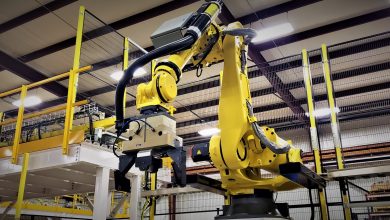Top Features to Look At Before Buying a Gaming Laptop

Gaming laptops are built with high-end hardware to provide the user an ease of playing competitive and AAA gaming. Before buying a gaming laptop, you should consider looking at some features like screen size, resolution, CPU, graphics card, and many other things.
You should also consider the sort of keyboard, touchpad, and other input choices that are most essential to you, as well as the quantity of RAM, storage, and battery life that you require. Along with the price and brand name, you should also consider the laptop’s cooling system and mobility. With these, in mind, you can select the ideal laptop for you.
Read on to dig out more about features for choosing the best gaming laptop.
- GPU
The most important feature to look for in a gaming laptop is GPU. The reason is that most games are GPU-dependent. You’re playing on entry-level, and then you will not need the highest settings for your laptop so choose GPU accordingly. A GPU’s ability to handle more complicated tasks with more cores leads to better graphics and frame rates.
Better graphics quality is achieved because the GPU can handle larger textures and higher-resolution visuals with some more RAM. The power consumption that gaming GPUs can use can harm battery life and produce heat. To lessen these problems, think about a GPU with a low power requirement. Be sure to weigh the price of the GPU and the laptop as a whole when making your choice because high-end gaming GPUs can be pricey.
- Resolution and Speed
Sharper and more detailed visuals are available at higher resolutions like 1920 x 1080 (Full HD), 2560 x 1440 (Quad HD), or 3840 x 2160 (4K), but they also demand more processing power. Select a resolution that matches the GPU’s processing power. The number of times the screen is updated per second is known as the refresh rate. Playing will be smoother and more fluid at a higher refresh rate (such as 144Hz or 240Hz). Higher resolution can be very expensive so, compare and consider the cost of the laptop and GPU while purchasing.
- Battery backup
For a laptop with a decent battery life, opt for one with a battery capacity of at least 50Wh. The amount of battery life offered by various battery technologies varies. For instance, computers frequently employ lithium-ion batteries since they have long battery lives. Compared to lithium-ion batteries, lithium-polymer batteries are lighter and have longer battery life.
The CPU and GPU, for example, can have a significant impact on battery life. Choose a laptop with energy-saving parts like Intel Core i5 or i7 processors. Based on normal usage scenarios, the majority of laptop manufacturers provide a predicted battery life. The actual battery life can differ based on usage patterns and other elements, so keep that in mind.
- CPU
Intel and AMD are the two main CPU manufacturers. A variety of processors with varying performance and cost are available from both brands. Processors from the most recent generations are often quicker and more energy-efficient than those from earlier generations. Different processor versions, each with its unique features and performance, are available from each brand. When selecting a processor model, take into account the particular requirements of your usage (such as intensive multimedia editing, gaming, regular use, etc.).
This is a GHz scale that represents a processor’s speed (gigahertz). The CPU runs more quickly the higher the clock speed. Performance can be impacted by a processor’s core and thread count. In general, more cores and threads will lead to higher performance, particularly for activities that benefit from parallel processing. The processor’s internal cache helps it store frequently used data for quick access. It is a small amount of fast memory. The processor can handle complex tasks better the greater the cache capacity.
- Storage
Solid State Drives (SSD) and Hard Disk Drives (HDD) are the two primary storage formats found in laptops (SSD). In comparison to HDDs, SSDs are more expensive, faster, and more dependable. Think about how much space your files, games, and programs will require. Most people can typically get by with a laptop with at least 128GB of storage, but if you’re a gamer or you need more space, you might want to think about getting one with 256GB or more. On some computers, you can upgrade the storage, but not on others. Examine whether the laptop you’re interested in enables you to upgrade your storage if you do.
- Collectivity
Think over the laptop’s port options, both in terms of quantity and type. To guarantee that you can connect all of your accessories and peripherals, look for laptops with a variety of ports, including USB-A, USB-C, HDMI, Ethernet, and audio connections. For the finest image quality when using an external display, search for a laptop with a dedicated graphics connector like HDMI or DisplayPort. A wired connection to the internet is offered through an Ethernet port, which might be quicker and more dependable than Wi-Fi.
If you require a reliable internet connection for online gaming, take into account a laptop with an Ethernet connector. You should opt for a laptop with an integrated card reader if you need to transfer images and other material from memory cards. To guarantee that you can connect all of your devices and peripherals conveniently and reliably, look for a laptop with a wide variety of ports and connectivity choices. For the best performance, also confirm that the laptop you select supports the most recent Bluetooth and Wi-Fi standards.
In conclusion, keep these six things in mind while purchasing it. This will enable you to buy the best gaming laptop that will offer the finest performance and let you enjoy immersive experience.
Read more: 5 Things You Need to Know About Cat6 Plenum Cable




